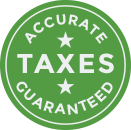Clergy Couple Housing
Each person of a clergy couple is entitled to the same housing allowance ordinarily provided a pastor who is not married to a pastor. Both pastors in a clergy couple are to receive a housing allowance. When cash housing allowances are provided, the contributions for each pastor are based on the total of base compensation…
Pre-tax Health Care Options (SHOP)
Your church may pay for all or a portion of the cost of SHOP coverage on a pre-tax basis. If you want employees to share in the cost of coverage, your church may use a cafeteria plan, as describe in Section 125. This would allow the employees to pay a portion of the SHOP premiums…
Marketplace/Exchange Health Coverage
Employees may apply for health coverage directly through the Health Insurance Marketplace, also known as the “Exchange”. Employees must pay for this coverage on a after-tax basis. Beginning, 2014, your church may not provide its employees with a pre-tax reimbursement for the cost of coverage obtained through the Exchange. However, it may increase an employee’s…
5 Tips On Creating PTO Policy For Your Church
In the payroll business, we see many versions of time off policies – it’s rare to have two that are the same. However, one thing we do see with regularity is churches tying themselves in knots trying to implement a policy that they think is fair for everyone. What they end up doing is creating…
Beware Orlando-Related Scams: IRS
The IRS has issued a consumer alert about possible fake charity scams in the wake of the mass shooting in Orlando, Fla. Scam artists commonly try to take advantage of generosity after such a headline tragedy by impersonating charities to get money or private information from taxpayers, the agency warns. Such fraudulent schemes may involve…
5 Steps To Prepare for New Overtime Rules
5 Steps To Prepare for New Overtime Pay Rules Your church will likely face one of the largest challenges in just the next few months. Most churches aren’t ready for the new overtime and worker classification changes to the Fair Labor Standards Act (FLSA) the Department of Labor recently published, which will impact to millions…
FLSA Overtime Changes
If church employees are paid a salary, does that mean they are exempt from overtime? Not necessarily. To be classified as exempt, employees must meet all of the following requirements: Paid on a salary basis Paid a salary that meets or exceeds the minimum requirement Paid their full salary in any workweek in which they…
Housing Allowance
The housing allowance which you pay your Pastor in cash and the housing allowance the IRS allows your Pastor on an income tax return might not be the same number. The reason for this is that the IRS includes more expense items when calculating a housing allowance than the absolute minimum items these guidelines mention…
Parsonage Provided
When a parsonage is provided, the congregation should pay for utilities and maintenance. (For tax purposes it is usually to the pastor’s advantage if items like utilities, maintenance, etc. be paid for directly by the congregation rather than to the pastor and then the pastor paying these expenses.) Parsonage Fair Rental Value In addition to…
Designating A Housing Allowance
Some congregations provide their Pastors with a housing allowance in place of a parsonage. This figure should reflect the realistic fair rental value of a home in the community, and would normally include such costs as insurance, utilities and taxes. Generally, a minimum cash payment of $12,000 is required for a housing allowance when a…





